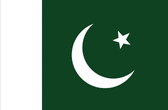
Call 0330 880 3600 Calls may be monitored or recorded. Opening Times.
- TRAVEL INSURANCE
- COVID-19 COVER
- More Options
- Help & Advice
- Existing Customers

Call 0330 880 3600 Calls may be monitored or recorded. Opening Times.

Need help?
UK Customer Services0330 880 3600*
Open Monday to Friday 9:00am to 6pm, Saturday 8:30am to 4pm and closed Sundays.
*Calls are recorded for training and quality purposes.
Other Guides

Official name: Islamic Republic of Pakistan
Capital city: Islamabad
Languages spoken: Urdu, English, Punjabi, Sindhi, Pashto, Balochi
Population: Around 245 million
Currency: Pakistani rupee (PKR)
Time zone: GMT+5
Driving side: Left
Climate: Ranges from arid desert to humid monsoon zones, with hot summers, mild winters in the lowlands, and harsh cold in the mountains
Pakistan is a country of striking contrasts, from the towering peaks of the Karakoram and Himalayas to the deserts of Sindh and the fertile plains of Punjab. It has a rich cultural heritage spanning ancient civilisations, Mughal architecture, and vibrant bazaars. However, political instability, security challenges, and regional tensions mean that travel can be complex, and visitors are advised to monitor the situation carefully.
Pakistan shares borders with India, China, Afghanistan, and Iran, with a southern coastline along the Arabian Sea. The country’s geography is defined by the Indus River system, the world’s highest mountain ranges in the north, and extensive deserts in the south. K2, the world’s second-highest mountain, lies within its borders.
Most international visitors arrive via Islamabad, Lahore, or Karachi airports, all of which offer connections to Europe, the Middle East, and Asia. Domestic travel is possible by air, rail, or bus, though road conditions vary and driving can be hazardous. Tourist attractions include Lahore’s Mughal monuments, the Hunza Valley, and the Karakoram Highway, but security and infrastructure issues require careful planning.
UK citizens require a visa to enter Pakistan, which can usually be obtained online through the country’s e-visa system. Longer stays or work-related travel may need additional permits. The British High Commission is in Islamabad, with Deputy High Commissions in Karachi and Lahore.
The Pakistani rupee (PKR) is the national currency. ATMs are available in major cities, and credit cards are accepted in larger hotels and restaurants, though cash is necessary in rural areas. Inflation and fluctuating exchange rates are common, so travellers should keep track of current values.
Healthcare facilities vary widely: major cities have private hospitals of reasonable quality, but rural areas often lack adequate services. Tap water is not safe to drink, and bottled water is strongly recommended. Risks include malaria in some regions, dengue fever during monsoon season, and food- and water-borne illnesses. Comprehensive medical travel insurance with evacuation cover is essential.